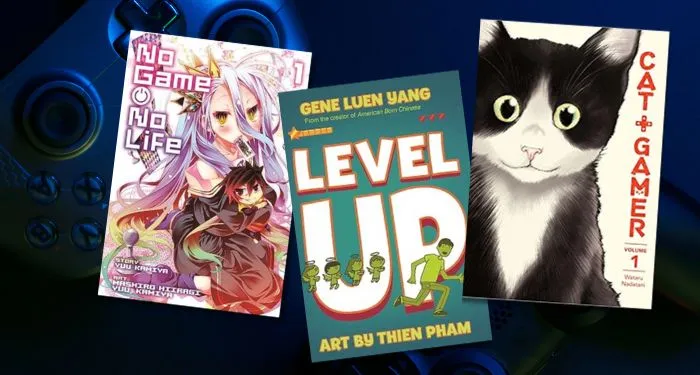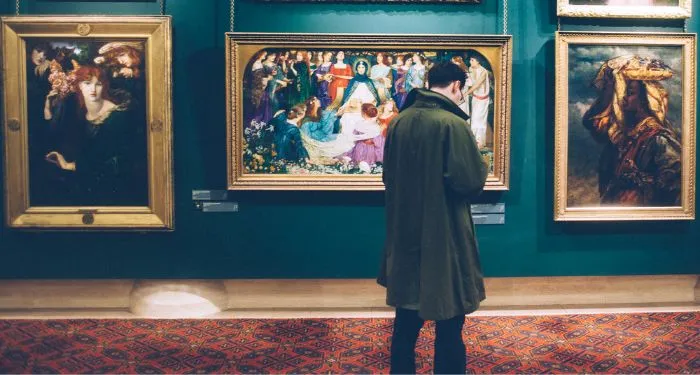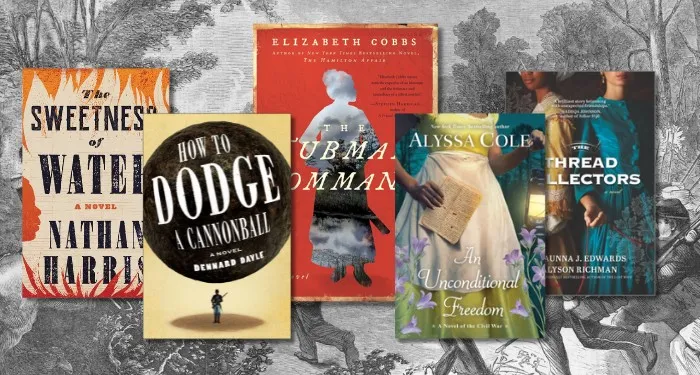When nineteen-year-old Xi Zhongxun arrived in north-central China’s arid Loess Plateau in 1932, he was in search of a father figure. He found one in Liu Zhidan, a charismatic revolutionary described by the American journalist Edgar Snow as “a modern Robin Hood, with the mountaineer’s hatred of rich men; among the poor he was becoming a name of promise, and among the landlords and moneylenders the scourge of the gods.”
Xi had joined the Chinese Communist Party at the age of fourteen while he was in jail for trying to assassinate a progovernment teacher at his school. He left his home in a village in Shaanxi province two years later and became so infamous as a guerrilla fighter that he couldn’t risk returning, despite his family’s entreaties that he help till the fields. Instead he joined Liu and learned firsthand what had actually made him a success—not his romantic idealism but, contrary to Snow’s florid prose, his pragmatism. Liu had forged alliances with people the Communists usually persecuted, such as the prosperous farmers they dubbed “landlords.” He also avoided trying to defeat government forces in towns, even though Communist doctrine held that this was where the revolution should focus its efforts. Liu might have been iconoclastic, but his tactics helped create the only safe haven for Communist forces in China.
And yet, in a precursor of China’s travails over the coming decades, these successes were upended from the start by the Communist Party itself. In 1934 party officials arrived at Liu’s mountainous base and eventually detained Liu, Xi, and others for not attacking landlords and for ignoring urban areas. Xi escaped punishment and for the next twenty-five years was a rising star in the party. But the party’s purges never let up. He survived by learning how to turn on friends and by carrying out endless acts of self-abasement to prove that whatever he might really think, in the end he would toe whatever line the party was laying down.
Nonetheless Xi, too, was eventually purged in the early 1960s. His family was broken apart and his career derailed because of one ludicrously small slip that his enemies pounced on. Although he was rehabilitated after the Cultural Revolution, for the last decade of his life he lived in internal exile in southern China, suffering from a kind of post-traumatic stress disorder that left him depressed, unstable, and prone to outbursts of anger.
Xi was an important figure in the history of the People’s Republic. But what makes his story crucial to understanding today’s China is the family that he raised. Watching and learning from these contortions was Xi’s toughest and most ambitious child, a tall, handsome young man named Xi Jinping.
This depressing world of purges and backstabbing is meticulously detailed in Joseph Torigian’s biography of Xi Zhongxun, The Party’s Interests Come First. Its title comes from a piece of calligraphy that the Communist leader Mao Zedong wrote for Xi in 1943 as thanks for upholding his policies. It encapsulates the cultlike mentality that Mao expected of party members: everything from family and friends to ideals and beliefs was to be subordinated to whatever the party demanded.
Reading Torigian’s work alongside Robert Suettinger’s biography of Hu Yaobang, The Conscience of the Party, one is struck by the sheer level of ambition and amorality that characterized the PRC’s first generation of leaders. Xi and Hu were not independent-minded; they were true believers in a system that was strictly hierarchical and considered itself always in the right. They were later regarded as reformers, but they acted on their principles only toward the ends of their lives and only to a limited extent, and for that they died as marginalized figures.
Both books are also histories of the first forty years of PRC elite politics told through the biographies of their subjects. This huge topic is a heavy burden for one person’s life to carry, especially since neither Xi nor Hu was absolutely central to this period, unlike Mao or Deng Xiaoping. And yet their stories provide insights into the opaque world of CCP culture, helping us understand a superficially very different China in the twenty-first century.
In contrast to Hu, who eventually became general secretary of the Chinese Communist Party, Xi never rose to such a high rank. He was, however, involved in a practice that still defines the regime: its use of history to legitimize its assumption of power and to explain why leaders overthrew their predecessors. This obsession with history dates back to the mid-1930s, when Xi, his superior Gao Gang—another important figure from the early years of the People’s Republic—and his mentor Liu Zhidan were attacked for their unorthodox tactics. They were not simply criticized and replaced. Instead they were villainized and faced execution—typical of how the party even today views history as crucial to its survival.
They were saved, or so the story goes, when Mao and his eight thousand soldiers arrived in the region, having just completed their epic Long March. Mao’s troops had been hounded by government armies for a year and were a shadow of their former strength, but he had recently taken control of the party with a promise to ditch standard Marxist strategies and focus on the countryside. Mao detained the officials who had purged Liu and Xi and issued an apocryphal order: “Halt the executions! Stop the arrests.”
Mao, however, was more canny than benevolent. He left the three men with the black mark of having been purged on their reputation, meaning they were forever vulnerable and thus dependent on his good graces. Seeking redemption, Liu volunteered to lead a hopeless offensive and died a martyr on the battlefield in 1936.
For two decades Xi and Gao were Mao’s trusted deputies. The war between the Communists and the Nationalist government was incredibly brutal, and Xi was in the center of it. In 1943 he claimed credit for rooting out nearly two hundred alleged spies by forcing people to confess at mass rallies, including a fourteen-year-old girl who said she seduced a teacher to get information on the Communists. Tellingly, Xi was lauded by Mao’s most notorious henchman, Kang Sheng, who advocated spreading Xi’s dubious methods throughout the Communist-controlled areas of northwestern China.
The shocking part is that Xi had been the victim of a purge and yet was carrying out one himself. How could he now be doing the same thing? As Torigian puts it, “One possible answer, perhaps the most obvious one, is that Xi was a party member, so when he was told to find spies, he did.”
The Communist Party didn’t just use purges to hold on to power; it also used ideology, and again Xi had a front-row seat. In 1945 Mao issued a landmark resolution on the party’s first two decades. It explained why traditional party policies—for example, pushing for a revolution led by the urban proletariat—were wrong and why Mao’s rural approach was correct. The document put “Mao Zedong Thought” on a level with Marxism’s greatest thinkers, giving him a powerful weapon he could wield against any challengers. “For the first time,” Torigian writes, “party history was officially understood as a contest between a correct and an incorrect ‘line,’ and Mao and Xi were on the right side.”
Xi tried hard to stay there. During land reform in the late 1940s in areas under Communist control, he complied with requests to make the campaign violent. In 1954, when one of China’s best-known public intellectuals, Hu Feng, submitted a 280,000-word report criticizing the country’s lack of artistic freedom, Xi lauded him for trusting the party but forwarded the report to one of Hu’s enemies. Hu then suffered twenty-five years of persecution, including long stints in prison and labor camps.
Xi also participated in the new state’s first major purge of a leader, his former boss, Gao Gang. In 1953 Mao had pushed Gao to criticize one of Mao’s perceived rivals, but Gao’s clumsy attack had provoked a backlash among party members. Mao quickly dropped Gao and used Xi to force him to confess to a series of trumped-up charges. Gao committed suicide in 1954.
Despite Xi’s best efforts, it was eventually his turn to be purged. The pretext was a historical novel named after Liu Zhidan. The novel highlighted the fact that Liu had probably pioneered the sort of rural-based guerrilla tactics that Mao liked to claim as his own innovation. It also praised a fictional character who resembled the purged Gao.
Xi’s error had been to support publishing the novel. In 1962 he was arrested, along with a staggering 20,000 other people who were said to have been involved in the imagined plot, which Mao thought was designed to undermine his authority and his standing as the party’s first among equals. The head of the publishing house was persecuted and died. At least two hundred were beaten to death, went mad, or were injured. They included people who had served in dangerous missions for the party—all that mattered was that at some point in their career they had worked with Xi.
When the Cultural Revolution began four years later, Xi was banished to the provinces and his family endured merciless physical and mental torture. One of his daughters committed suicide. His fifteen-year-old son, Xi Jinping, was banished to Shaanxi province, where he lived in a village for seven years.
Like Xi and many other first-generation Communist leaders, Hu Yaobang joined the party at a very young age, when he was fourteen, and he left home a year later in 1930 to join the armed struggle against the Nationalist government. He became a protégé of Mao, who promoted him and later made him head of the influential Communist Youth League. He had qualms about some of Mao’s policies but never broke with him. As Suettinger makes clear, Hu was “a devoted acolyte of Mao Zedong.”
But for the first decade after Mao’s death in 1976, Hu was a central figure in China’s turn toward reform. He started a journal that promoted reformist ideas in the party. His signal achievement was to rehabilitate not only the few hundred senior leaders purged by Mao but hundreds of thousands of ordinary party members. He also ordered officials to rehabilitate not just victims of the Cultural Revolution but anyone who had been unjustly treated as far back as the party’s founding in 1921. This set off a reckoning with past injustices that spawned underground history journals, independent documentary films, and autodidactic historians—a movement that continues today.
In 1982 Deng made Hu general secretary of the Communist Party, at a time when Xi Zhongxun was still striving for a higher position. These chapters in Suettinger’s book reveal Hu’s driving force in promoting economic and political reform. While Deng was ambivalent about many policies—as was Xi, who didn’t initially support the most basic of all rural reforms, which entailed breaking up communes and returning land to the farmers—Hu vigorously pushed for these and other policies.
But Hu couldn’t manage the split between Deng and another elderly party leader, Chen Yun, who had differing views on the economy. Unable to please both masters, he was overthrown in a palace coup organized by the senior generation of leaders. The immediate causes were student demonstrations in 1986 and a general sense among the old guard that liberalization had gone too far. Early the next year Hu caved to pressure and submitted his resignation. Instead of being allowed to retire in peace, however, the seventy-two-year-old was subjected to a five-day “party life meeting” at which dozens of the party’s most senior leaders ripped into him for hours at a time. In the end, as Suettinger puts it, Hu was left “isolated, humiliated, and in tears.” When he died two years later, students took to the streets again in the largest pro-reform demonstrations in the history of the People’s Republic: the Tiananmen protests.
These books are state-of-the-art analyses of senior Chinese leaders, commendable for their wide-ranging use of sources and attention to detail. At the same time, however, they reveal gaps in how much we can know about elite politics in the CCP when its archives are not open to the public, most contemporaries are dead, and any eyewitnesses still living in China pay a high price for talking to any sort of independent historian, especially a foreign one.
Both books are extensively footnoted, relying mostly on diaries, published speeches, and recollections published over the years, some in China and many in Hong Kong or Taiwan. A more serious problem is worth mentioning specifically: relying on Chinese Internet articles that are no longer available. This is a serious issue that faces all research into authoritarian regimes. Suettinger admits that many of his online sources have since been erased from the Internet by the Chinese government. (One way to counter this would be to archive all URLs via the Internet Archive, www.archive.org, and then cite the archived link. Indeed editors should accept only archived URLs and not the current practice of saying when a link was accessed—a useless piece of information that does not prove that a deleted page existed.)
Also worth mentioning is that neither of these books is aimed at the nonspecialist. Suettinger’s is more readable but has fewer details on Hu’s life, with large parts of the book recounting the background of events such as the Cultural Revolution. It’s also not really clear that Hu is best described as “the conscience of the party,” given his decades and decades of doing whatever the party demanded.
Without his son’s ascent to power, Xi would probably have been remembered as a rising star whose career came to an early halt thanks to a curiosity—a historical novel. He was purged for nearly twenty years and never ascended to the very top of the party. When he returned to power, it was to relatively marginal positions. He is credited with helping to start China’s best-known special economic zone, the now legendary boomtown of Shenzhen, next to Hong Kong, but as Torigian shows, he had little sense of what he was doing there and ended up being recalled before Shenzhen took off. He also helped manage ethnic minority affairs, in which he followed a moderate course. He met Tibetans and pushed for religious freedoms. But he had little long-term impact because the party never embraced these policies.
Like Hu, Xi mainly became a blank screen onto which people could project their hopes for a better, more moderate Communist Party and indulge in the “what if” school of history: Would China now be a kinder, gentler place if these men had succeeded? A better question would be: Is it possible for this system to allow kinder, gentler people to succeed? These books offer a clear answer: no.
General readers can still profit handsomely from Torigian’s book but can easily skim some of the very detailed chapters on Xi Zhongxun’s activities and focus instead on the father–son relationship. The book has telling details about Xi Jinping’s life, and several chapters stand out for drawing parallels between the two men. The book’s last two chapters are almost exclusively about their intertwined lives and provide the best account we have of Xi Jinping’s political rise.
In the chapter “Princeling Politics,” for example, Torigian tells us how the Xi family helicoptered their favorite son into a series of jobs in the provinces in the 1980s. Many of the details have not been reported before, making them essential to understanding Xi Jinping’s career. What comes across in Torigian’s summary of this nearly twenty-five-year period is that he benefited mightily from his privileged ties and, though he had some accomplishments, he was not a notable leader.
In rural Hebei he reduced taxes on farmers and was the subject of puff pieces in the local press, but then he had to be transferred out of the region when his father ruffled feathers by pushing too hard for him to be promoted. That was followed by a very long stint in Fujian, where he presided over the province’s booming economy, although this was mainly due to export processing industries that he did not establish. He stayed there seventeen years, evidence of a somewhat stalled career that really took off only after his father’s death in 2002. He was then promoted to party secretary of the much more important Zhejiang province and five years later, in 2007, returned to Beijing as a member of the Standing Committee of the Politburo and heir apparent to Hu Jintao. Because Torigian is mainly focused on the father, he does not explain why Xi Jinping rose so quickly, but the implication is that the influential second generation of party leaders saw him as one of their own who would keep the party firmly in power.
Torigian also has interesting material on Xi Jinping’s second marriage, to the glamorous singer Peng Liyuan. On one level, it was an odd match between an ambitious but somewhat stodgy apparatchik and an apolitical singer. But both had suffered in the Cultural Revolution, and both were true believers in the Chinese Communist Party. Torigian writes, “Family legacy, soaring ambition, patriotism, a fetishization of suffering, discipline, a stated lack of interest in materialism—the collection of shared values between Xi Jinping and Peng Liyuan is striking.”
Reading these two books in tandem, one is struck by the extreme nature of these people’s lives. It’s hard to know if they had real friendships, because even the closest of comrades turned on each other, and equally hard to imagine what sort of marriages and family life they had. Most importantly for today’s China, one wonders what Xi Jinping thought of his father’s life.
One way to look at it is that Xi Jinping is trying to recreate the imagined People’s Republic before his father’s purge in the early 1960s—before Mao veered toward ever more fanciful and self-destructive policies, when officials were supposedly incorruptible and motivated, when society had different interest groups, but all listened to the party. This explains his focus on anticorruption as well as on reining in civil society organizations.
But Xi might have learned other lessons as well. His father was widely seen as a moderate. Against his better judgment he had agreed to help the daughter of an old friend who was writing a sensitive novel, resulting in Xi being purged. He treated ethnic minority leaders with dignity and respect. Perhaps his son has decided that these were mistakes and to pursue instead much more focused and ruthless policies.
On the other hand, perhaps those policies have nothing to do with his upbringing. Some of the elite families did end up learning from their parents’ travails. One of Hu Yaobang’s children, for example, urged Xi Jinping to pursue a course of reform when he came to power in 2012. Some of Xi’s siblings seemed more reform-oriented, while others went into business and became ultrawealthy.
But by some estimates, about 90 percent of the “second Red generation” ended up being hard-liners like Xi Jinping. This could be cynicism—the only way to keep power is to keep the party as authoritarian as possible—but they may also feel a loyalty to their parents’ dreams. As Torigian puts it:
While some may wonder why Jinping would remain so devoted to an organization that severely persecuted his own father, perhaps the better question is, How could Jinping betray the party for which his father sacrificed so much? With such a strong belief in the need for unity in the face of adversity, not stepping forward would be treachery.



















 English (US) ·
English (US) ·